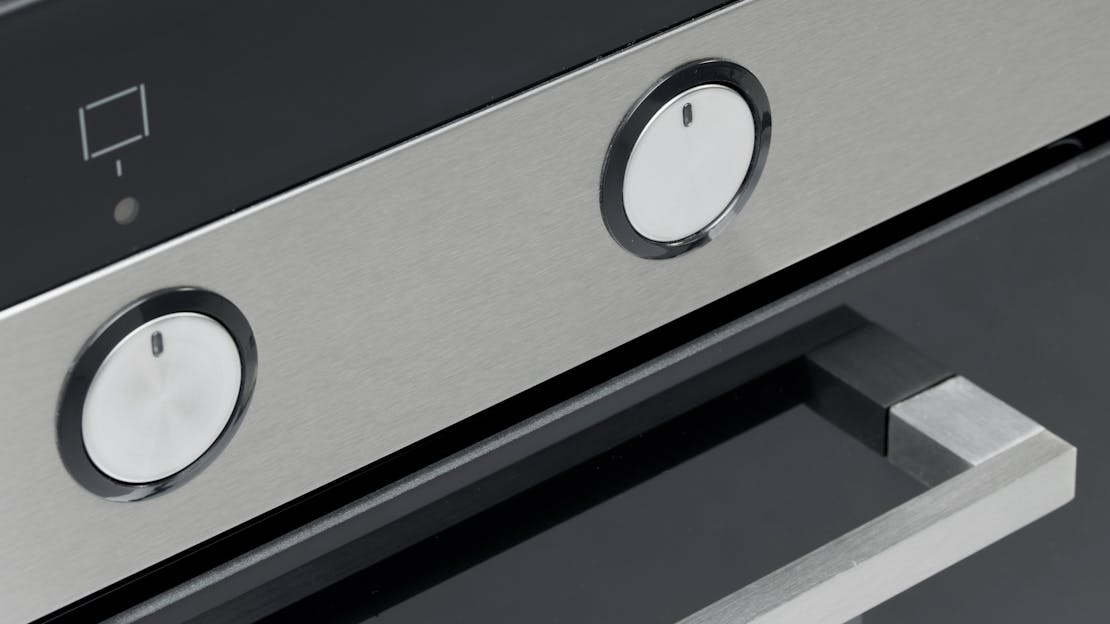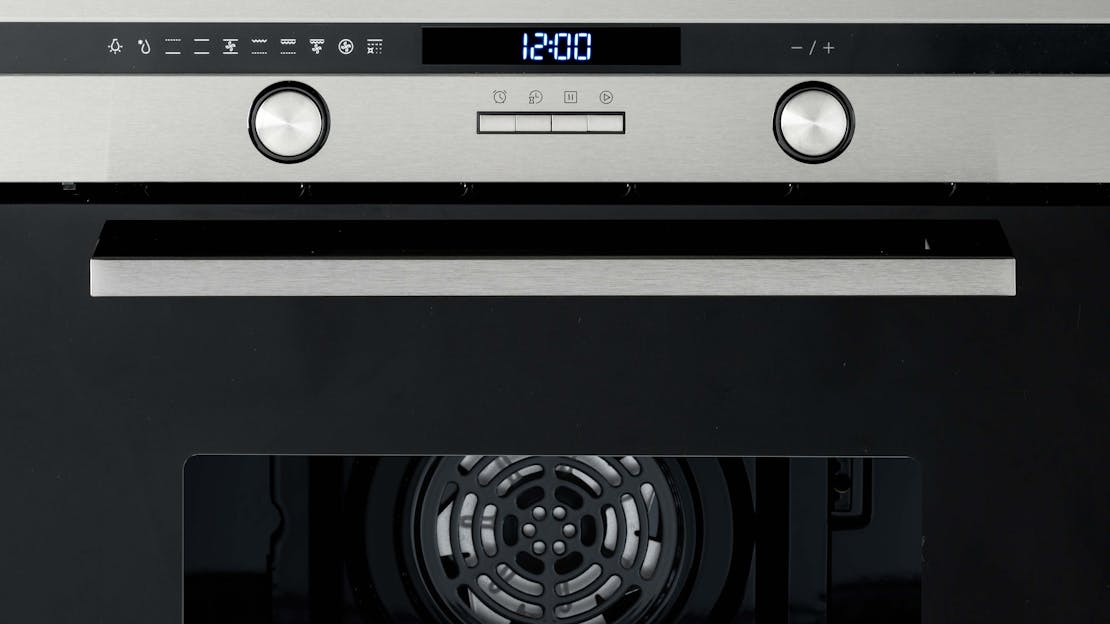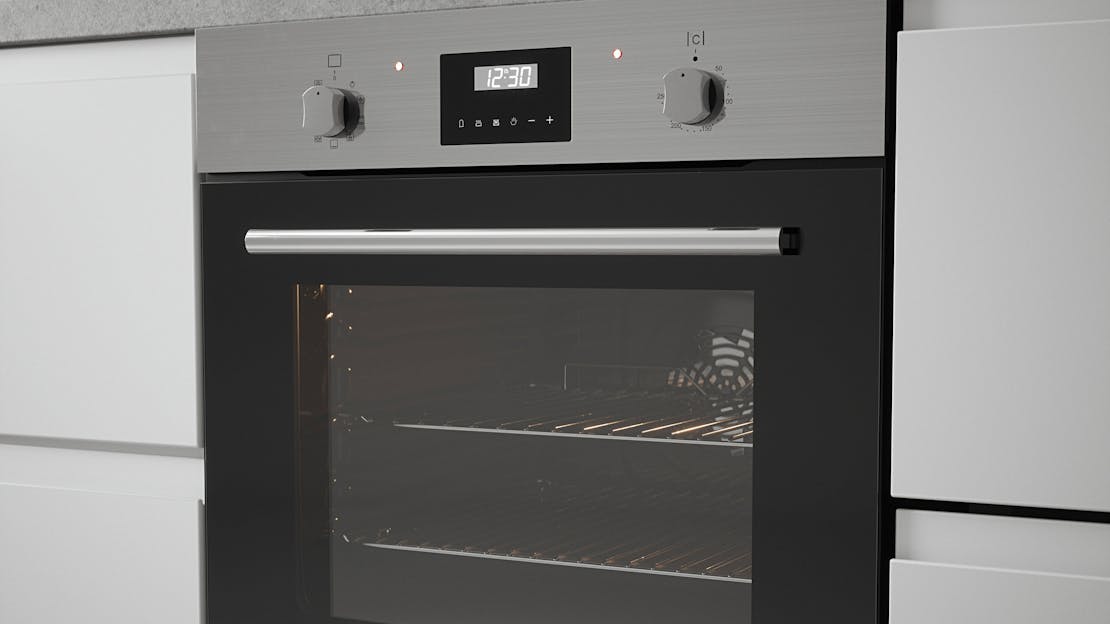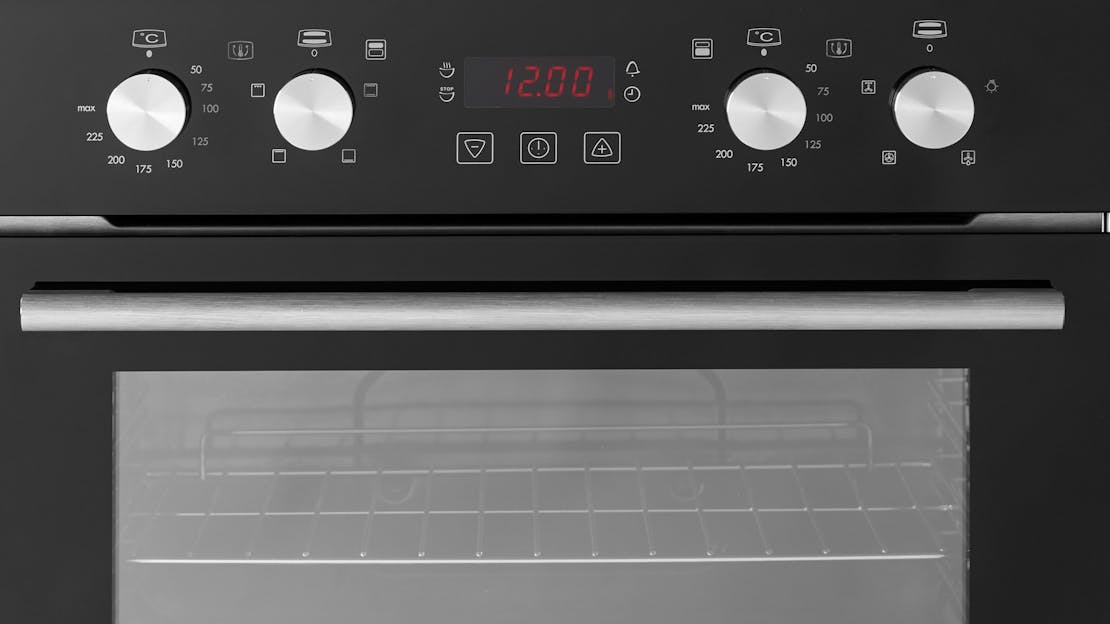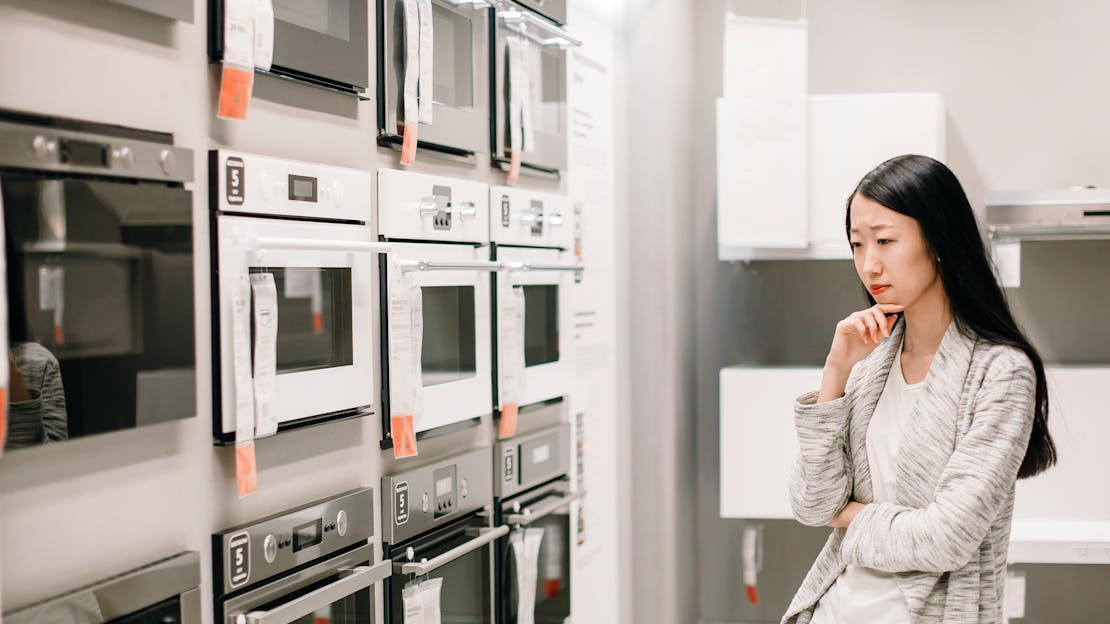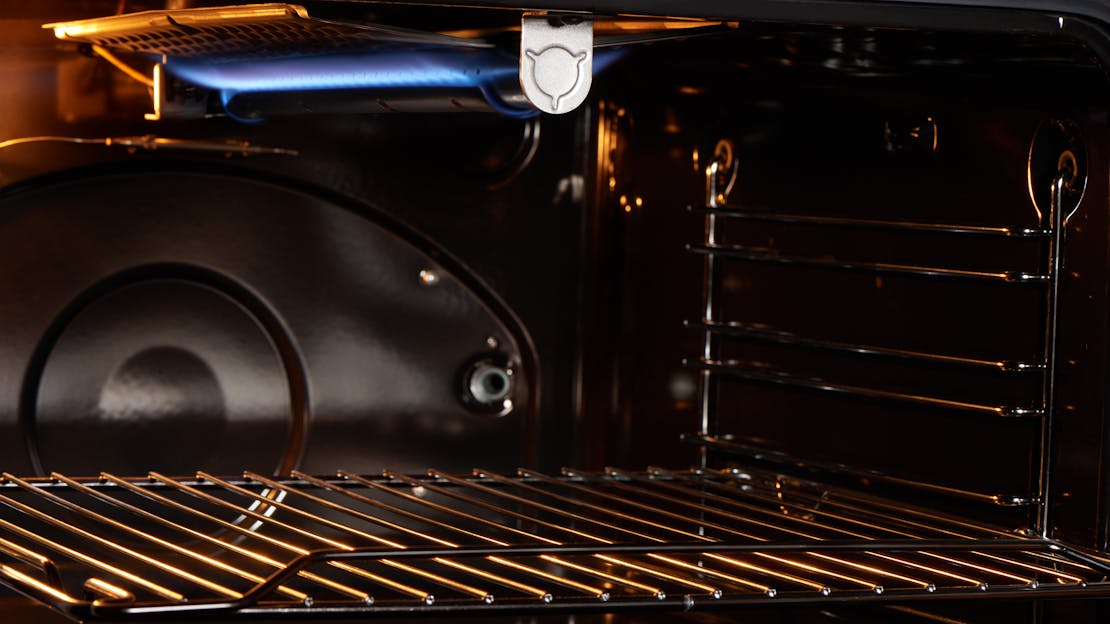
Gas vs Electric Ovens: What's the Difference Between Them?
In the world of culinary exploration, the choice of kitchen appliances plays a pivotal role in shaping the way we prepare and savour our favourite dishes. Among the essential tools at a cook's disposal, the oven stands as a true cornerstone, providing the means to bake, roast, grill, and more. Within the realm of ovens, two distinct power sources have risen to prominence over the years: gas and electric. Each of these cooking champions possesses its unique set of characteristics and benefits, sparking the age-old debate of which is superior. As we embark on a journey to unravel the fundamental differences between gas ovens and electric ovens, we'll uncover the intricacies of these culinary workhorses and help you make an informed decision when selecting the ideal oven for your kitchen. So, let's dive deep into the heart of the kitchen and discover the fascinating disparities that define gas and electric ovens.
Gas ovens vs electric ovens advantages and disadvantages
Let's delve into the distinctions between gas ovens and electric ovens. By examining the advantages and disadvantages of gas ovens versus electric ovens, you can gain a clearer understanding of which option aligns better with your needs and preferences.
Electric Oven Advantages:
Consistent Heating: Electric ovens provide even and consistent heating throughout the cooking process, making them ideal for baking, where precise temperature control is crucial.
Ease of Use: Electric ovens are generally easier to operate and maintain. They feature straightforward temperature controls and often come equipped with features such as digital timers and self-cleaning functions.
Safety: Electric ovens are considered safer as they lack open flames or the risk of gas leaks. There's no need to worry about pilot lights, reducing the likelihood of accidents.
Moist Cooking: Electric ovens tend to retain moisture better than gas ovens, which can be advantageous for dishes like roasts and baked goods.
Electric Oven Disadvantages:
Higher Energy Costs: Electric ovens typically consume more energy and can be more expensive to run compared to gas ovens, particularly in areas with high electricity rates.
Slower Heating: Electric ovens often take longer to preheat compared to gas ovens, which can be less convenient when you're in a hurry to start cooking.
Limited Temperature Control: Some cooks prefer the precision of gas ovens for high-heat cooking, like broiling or using the broiler drawer, which electric ovens may not offer.
Gas Oven Advantages:
Quick Heating: Gas ovens heat up rapidly, allowing you to start cooking almost immediately. They excel at tasks that require high heat, such as grilling.
Lower Operating Costs: Gas is often more cost-effective than electricity, resulting in lower energy bills when using a gas oven over time.
Precise Temperature Control: Gas ovens provide precise temperature control, enabling you to adjust the flame for rapid temperature changes and accuracy.
Gas Oven Disadvantages:
Uneven Heating: Gas ovens can have uneven heat distribution, potentially leading to uneven cooking or browning, especially towards the back of the oven.
Safety Concerns: While gas ovens are generally safe when properly maintained, there is a potential for gas leaks or pilot light issues that can pose safety risks if not addressed promptly.
Drier Cooking: Gas ovens tend to be drier than electric ovens, which can affect the moisture content of dishes like cakes and bread, potentially resulting in a less desirable texture.
Complex Maintenance: Gas ovens require periodic maintenance to ensure safety and efficiency, including checking for gas leaks and cleaning burners.
Ultimately, the choice between an electric oven and a gas oven should align with your cooking preferences, the energy costs in your region, and safety considerations. Both types of ovens have their advantages and disadvantages, so the decision should be based on your specific culinary needs and priorities.
What to consider when buying a new oven.
When looking to purchase a new oven, there are several crucial factors to take into account. Firstly, assess the available space in your kitchen and determine whether you need a built-in or freestanding unit. Consider your cooking preferences, such as whether a gas or electric oven is more suitable, and if features like convection cooking, self-cleaning functions, or various cooking modes are necessary. Energy efficiency is another essential consideration, as it impacts long-term running costs. Additionally, evaluate the oven's capacity to ensure it meets your household's cooking requirements, and scrutinise user-friendly controls and safety features. Lastly, take budget constraints and the reputation of the brand into consideration, as these factors play a significant role in making an informed purchase decision.
Is it cheaper to cook with gas or electric?
Whether it's cheaper to cook with gas or electricity hinges on several factors, including your location, the efficiency of your appliances, and the prevailing energy prices in your region. As a general rule, gas often proves to be the more cost-effective option for cooking, particularly if you have access to a natural gas supply.
Gas tends to come at a lower cost per unit of energy (e.g., British Thermal Units or BTUs) when compared to electricity. Gas ovens are renowned for their quick heating and precise temperature control, which can contribute to energy savings.
Electricity prices can vary significantly depending on your location, and electric stovetops and ovens may take longer to reach cooking temperatures and cool down compared to their gas counterparts. Nevertheless, some areas offer reduced electricity rates during off-peak hours, potentially making electric cooking more economical if you can plan your cooking activities accordingly.
Ultimately, the cost-effectiveness of cooking with gas ovens or electric ovens will be determined by your unique circumstances, such as your energy tariffs, the efficiency of your cooking appliances, and your cooking habits. It's advisable to compare energy prices and assess the energy efficiency of your cooking equipment to ascertain which option offers the most cost-effective solution for your specific needs in the long term.
Top Selling Single Electric Ovens from MyAppliances
Upgrade your kitchen with our range of ovens, including fan, multifunction, and self-cleaning options. From even heat distribution in fan ovens to versatile cooking modes in multifunction ovens and hassle-free maintenance with self cleaning ovens, we have everything to suit your cooking needs. Experience convenience and innovation in your kitchen with our oven solutions.
Oven Buying Guides - Helping you choose the right oven
Oven Buying Guides - Helping you choose the right oven
At the core of every home lies the kitchen, with the oven taking centre stage. This essential appliance is relied upon and used daily, underscoring the significance of selecting the right one. The multitude of options in terms of style, size, and functions can be daunting. To simplify the process, we have created practical guides that will help you determine precisely what to look for. By following these guides, you can confidently choose an oven that caters to your cooking needs and aligns with your lifestyle.
![Ultimate Oven Buying Guide]()
Welcome to the comprehensive guide on electric ovens! Whether you're a passionate home cook or someone who simply enjoys preparing delicious meals, this guide is here to provide you with valuable insights into the world of electric ovens.
![The Ultimate Pyrolytic Oven Guide]()
A pyrolytic oven is a self-cleaning appliance that utilises high temperatures to incinerate food residue and grease, eliminating the need for manual scrubbing. During the cleaning cycle, which reaches temperatures as high as 400 to 500 degrees Celsius, the oven locks its door and converts organic matter into ash.
![Single Electric Oven Buying Guide]()
If you're after a great value, functional and practical single oven, you've certainly come to the right place. Here at MyAppliances we stock an extensive range.
![Double Oven Buying Guide]()
Our double ovens will make light work of all your meals, offering a striking appearance, chunky controls and handy programmers. Want some more information? Simply check out our convenient buyers' guide below for all the details you'll need ahead of purchase.
![Oven Types: A Comprehensive Guide to Choosing the Right Oven for Your Home]()
When it comes to buying a new oven, the options can seem overwhelming. With over 20 different types of ovens available, each with unique features and functionalities, it can be difficult to determine which one is right for you.

